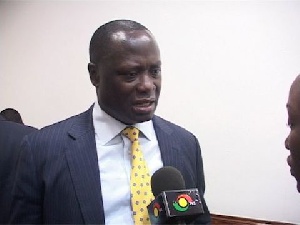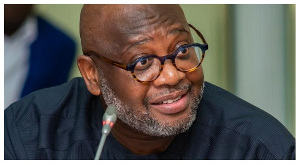Government is leaving no stone unturned to “aggressively develop” the country’s gas potential for sound economic take-off, Emmanuel Armah-Kofi Buah, Minister for Petroleum has said -- hinting that a Gas Master Plan is being finalised in that regard.
Speaking at the opening of the Ghana Gas Forum in Accra, the minister said a major challenge for the sector is appropriate infrastructure that will enable gas delivery to consumers in a cost-effective manner.
“My ministry is taking steps to address infrastructure planning and delivery requirements in a Gas Strategy outlined comprehensively in a Gas Master Plan. This Master Plan is being finalised with stakeholders and will be presented to cabinet for approval in the coming weeks,” the minister told a gathering of local and international energy sector actors.
Once cabinet approves the plan, the ministry will develop a Gas Policy and Gas Act that will provide a transparent regulatory framework for the industry, the minister indicated.
The gas sector regulations are expected to help address infrastructure and funding issues, institutional mandates for gas sector agencies, as well as to provide a revised gas pricing policy that will reflect the country’s “developmental priorities”.
Gas is increasingly becoming a major focus of government, given its significance in the generation of power. Having effectively exhausted its hydroelectric potential the country is increasingly moving toward thermal power generation, for which a lot of gas is required.
Dr. Ben Asante, a Gas Consultant to the Petroleum Ministry, told the forum that another gas processing plant, aside from the Atuabo Gas plant, will be required to deal with expected flows from ‘Greater Jubilee’ and the TEN project among others.
Greater Jubilee involves a full field development, which the minister said is on course is to commence production in 2018 -- with recoverable reserves of about 60million barrels and about 100billion cubic feet of non-associated gas.
He equally mentioned that a new gathering pipeline will be required to transport the incremental offshore flows of gas to onshore.
While plans are afoot to connect the Ghana Gas and the West African Gas Pipelines, the government intends to build another dedicated pipeline to support the evacuation of more gas to the Tema power enclave.
According to Dr. Asante, the decision to utilise the existing West African Gas Pipeline or the new dedicated pipeline in the long-term will be driven not just by tariff comparison and capacity reservation charges, but also by factors like ease of expandability for the future, vulnerability to third party damage, and assets control and operability considerations.
Business News of Thursday, 17 September 2015
Source: B&FT

















